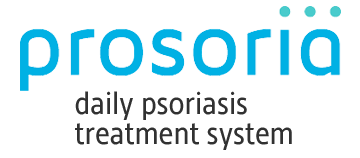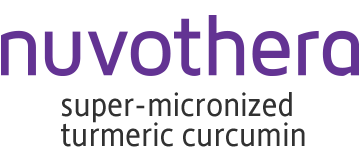
The COVID-19 pandemic is characterized by an overactive inflammatory response. Coronavirus poses a significant risk to those with a compromised immune system.
Inflammation is your body’s natural defense to protect itself from harm, however, if the immune system fails to respond effectively, it then floods the body with intracellular mediator proteins called cytokines. Scientists use the term “cytokine storm” to describe the severe inflammatory response which can ultimately lead to organ failure.
The good news is you can actively strengthen immunity and reduce inflammation by the choices you make every day.
Be Mindful
Meditation actively trains your mind to live in the moment. The term ‘neuroplasticity’ describes that the human brain changes in response to experiential learning. Scientists discovered people who meditate over an extended period of time had a decrease in cell volume of the amygdala, the part of the limbic system responsible for processing fear, anxiety, and stress. These changes matched the participant's perception of stress levels as well, indicating a change in subjective perspective as well as brain physiology. Those who meditate were seen to have a thicker prefrontal cortex and significantly more gray matter volume in the right angular gyrus, the part of the brain associated with empathy and complex language.
Harvard researchers found evidence that meditating for 15 minutes a day can change the expression of genes that regulate inflammation, circadian rhythms, and glucose metabolism. Furthermore, a recent study on Medscape Medical News found that worry and anxiety are strongly linked to fluctuations in levels of inflammatory markers.
Just Breathe
Breathing is an unconscious process regulated by the autonomic nervous system. How you breathe influences the amount of energy released to your cells and changes the hormones your body produces. Proper breathing techniques put the nervous system into a parasympathetic state, which leads to better focus, digestion, and balanced cortisol levels. Practice deep breathing by using the diaphragm to pull air into the lungs.
The key is to inhale and exhale deeply without force. Sit or lay down in a comfortable position, fully inhale through the belly, then chest, and let it go.
Trust Your Gut
The bacteria in your gut play an important role in achieving long-lasting health. Gut bacteria release chemicals that may promote or inhibit inflammation. The majority of the immune system resides in the gut. A central philosophy of well-being is to eat high fiber, nutrient-dense foods. Friendly gut bacteria thrive on fiber to promote glucose homeostasis, a strong immune system, and absorption of important nutrients. Probiotics are healthy gut bacteria that restore the gut flora and prevent harmful pathogens from entering the gut barrier. Enhance gut health with foods like apple cider vinegar, sourdough bread, yogurt, and fermented vegetables. Prebiotics are high-fiber foods that probiotics eat in order to survive and reproduce. Good sources include asparagus, bananas, garlic, onions, and Jerusalem artichoke.
Immune-boosting nutrients are naturally found in plants. Fruits and vegetables provide protective phytochemicals and antioxidants that help boost overall health and immunity.
As you age, your body needs more protein to support a healthy immune response, and the protein source is important. Researchers assessed the association between protein consumption and changes in inflammation long term in a community of people 60 and older. Those who ate higher levels of protein, especially from plant-based sources, showed beneficial changes in biomarkers of inflammation and oxidative stress. A variety of plant-based protein may benefit the elderly population by lowering chronic inflammation.
Eat Immune-Boosting Foods and Vitamins- Turmeric, garlic, ginger, astragalus, elderberry, green tea, dark chocolate, and echinacea.
Zinc- Oatmeal, wild rice, nuts like pecans, brazil nuts, almonds, and seeds like squash, pumpkin, and sunflower.
Vitamin C- Acerola cherries, rosehips, parsley, thyme, blackcurrant, kale, kiwi, lemon, oranges
Vitamin D- Spend time each day in nature to obtain the essential sunshine vitamin. Mushrooms produce vitamin D upon exposure to UV light just like us, therefore wild mushrooms exposed to sunlight make a viable food source of vitamin D. Salmon, egg yolks, and fortified cereals and milk also contain vitamin D.
Exercise Regularly
Engage in aerobic and strength conditioning exercises regularly. High-intensity Interval Training (HIIT) is an exercise that alternates between bursts of activity and periods of rest. This form of exercise has many benefits that can be achieved quickly. HIIT appears to reverse the age-related decline in mitochondrial function and proteins needed for muscle building.
However, HIIT raises cortisol levels, which can remain on overdrive if not balanced with low-intensity exercise. In short spurts, cortisol plays an important role in boosting immunity and limiting inflammation. Too much cortisol can slow down the production of white blood cells and trigger fat storage, especially around the midsection. Balance workouts so that you are adequately stimulated, but don’t overstress your body to the point of fatigue.
Rest and Digest
Intermittent Fasting gives the digestive system time to purge toxins and absorb nutrients. Eat during a 10-12-hour window to maximize health. Calorie restrictions can even slow the rate of aging at the genetic level by preserving the length of telomeres, the structures at the end of chromosomes that protect DNA.
Take Immune Boosting-Supplements
Turmeric is the holy grail of anti-inflammatory herbs. It is packed with curcuminoids that have powerful antiviral, and antioxidant properties. Curcumin helps alleviate depression, detoxify the body, boost immunity, and inhibit virus replication in human cells. It's so powerful that it matches the effectiveness of some anti-inflammatory drugs, without harmful side effects. Curcumin fights inflammation at the molecular level. It has been studied to lower histamine levels, a chemical known to trigger an inflammatory response. Nuvothera’s Super-Micronized Turmeric Curcumin is the most bioavailable and bioactive option of combined turmeric and curcumin. The super-micronized formula is most effectively absorbed by the body due to its ideal size of microparticles that are easily and rapidly taken up by our bodies, in addition to its ingredients that are pure and simple.
Medicinal Mushrooms include varieties like cordyceps, lion’s mane, maitake, shitake, reishi, and turkey tail. Medicinal mushrooms are considered immunomodulators for their ability to boost the immune system in various ways. Medicinal mushrooms have developed a strong immune defense system for many of the same toxins and pathogens that we are susceptible to. They help build a strong immune defense in humans, too. Some of the first antibiotics, like penicillin and tetracycline, were derivatives from fungal metabolites.
Spirulina is easily absorbed by the body and contains all essential amino acids as well as necessary vitamins, minerals, iron, magnesium, beta-carotene, and polyunsaturated fatty acids. Spirulina has the highest protein content per weight than any other food and is loaded with phytochemicals that remove toxins from the body. NASA successfully grows spirulina in space to feed astronauts on missions. The potent blue-green algae is one of the most concentrated foods available to mankind. Spirulina was regularly consumed by the ancient Mayan and Aztec civilizations because of its high-quality nutritional value. Spirulina helps modulate immune functions and exhibits anti-inflammatory properties by inhibiting the release of histamine from mast cells. Spirulina also enhances the body's ability to generate new blood cells.
Practice Gratitude
Gratitude empowers you to take charge of your own life and see the bigger picture. Gratitude means to give thankfulness to the world around you. Now more than ever can we appreciate the little things, in the end, that’s what matters most. Being thankful enables a person to remember what’s truly important in life and spread kindness along the way.

